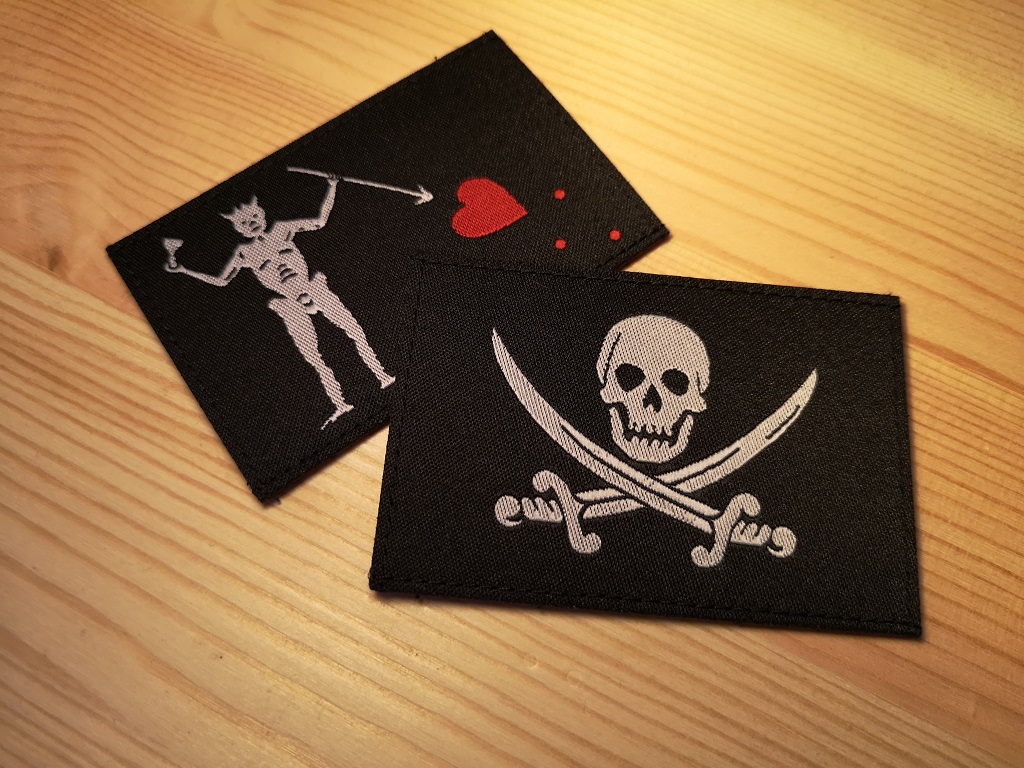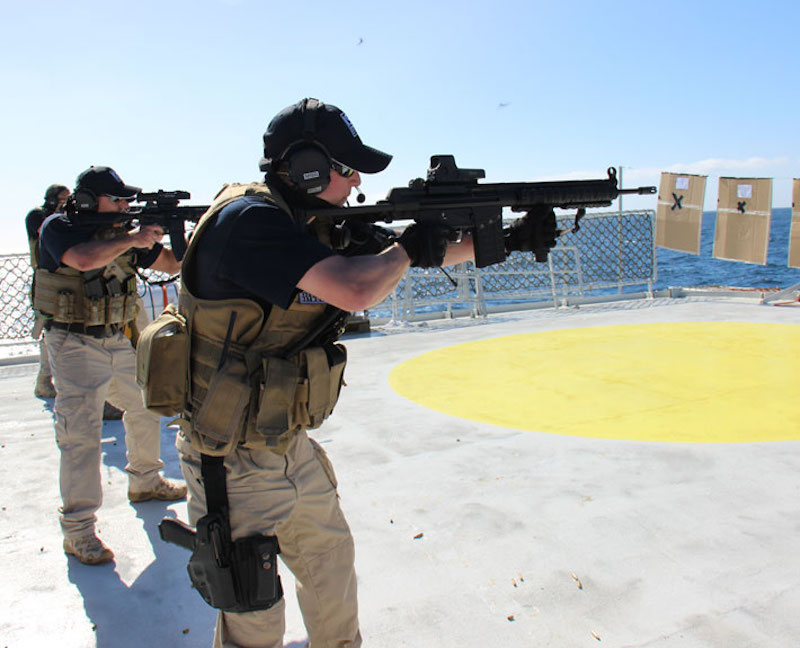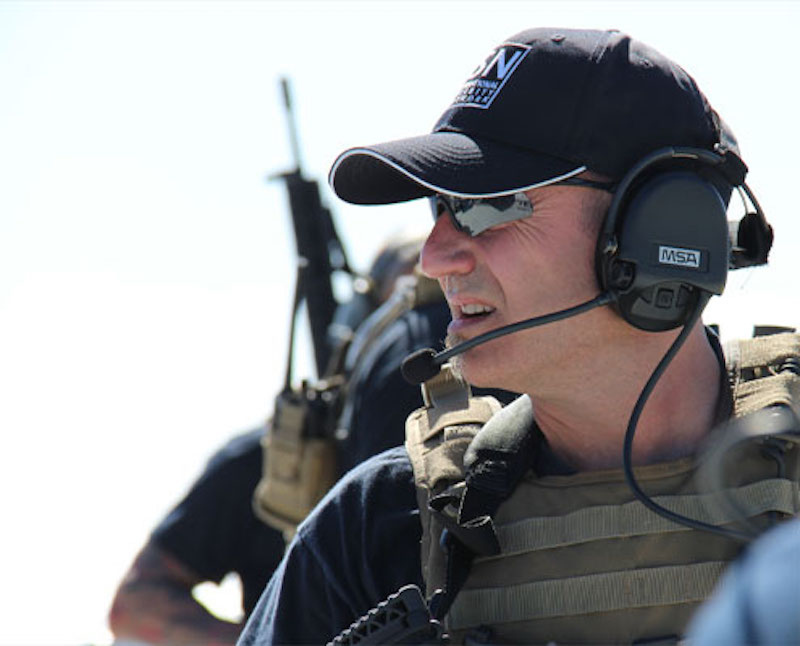Get the weekly SPARTANAT newsletter.
Your bonus: the free E-Book from SPARTANAT.

In the fight against pirates
Pirates are no longer just good entertainment on the big screen. They pose a threat to internationally important transport routes. Private security service providers are also fighting against them. Andreas Engelbracht is the Director of Maritime Security - HQ Germany at the ISN - International Security Network GmbH. Udo Lücken interviewed him for SPARTANAT and discussed the current situation of pirate threats on the world's seas and the ISN Special Maritime Security Training.
SPARTANAT: Mr. Engelbracht, how do you assess the current situation regarding the threat of piracy on the world's sea trade routes?
Engelbracht: Well, that can't be explained in just three sentences. Currently, we see at least five active preference zones. We have East Africa, West Africa, the Asian issue, and also Central and South America. Everywhere we currently find piracy with its broad range of manifestations. The focus of concerning activities lies for European merchant shipping off the West coast of Africa and sporadically off Nigeria in the Gulf of Guinea.
The media's ignorance and downplaying of this highly topical issue by official sources seems intentional and controlled. However, there is a verifiable different situation that certainly doesn’t warrant relaxation. East Africa (specifically Somalia) is by no means calm. Intelligence services are particularly monitoring three clans that have continued to successfully prioritize the business model of "piracy." Approximately 3,500 well-armed men are ready in Somalia to intensify piracy at any time. Their most sustainable weapon; they have time - plenty of time! They have adapted their hijacking tactics to the surveillance mechanisms of the ATALANTA forces that patrol here. Their "voyages" serve only the tactical goal of testing the gaps in security management. This happens regularly and highly professionally. They now wait out of the region of "North Puntland" until the already porous security chain breaks and then head directly into the Gulf of Aden. There is still a serious threat to civilian shipping and the sensitive trade routes east of Somali waters.
 West Africa has a different dimension. Here we recognize a structural state framework, however, corruption, mismanagement, and collusion are very pronounced nationally. The main focus here is not on classic ship hijackings followed by ransom demands, but rather on large-scale cargo theft, short-term abduction of crew members. Unfortunately, even regional state entities are sometimes actively involved.
West Africa has a different dimension. Here we recognize a structural state framework, however, corruption, mismanagement, and collusion are very pronounced nationally. The main focus here is not on classic ship hijackings followed by ransom demands, but rather on large-scale cargo theft, short-term abduction of crew members. Unfortunately, even regional state entities are sometimes actively involved.
The Asian issue, after serious incidents, was once well under control. However, we are currently witnessing a strong resurgence of piracy here too. However, these incidents almost always occur in territorial waters, making the term "piracy" legally inapplicable, and therefore classified nationally as "Organized Crime" only. This means these incidents fall out of the official pirate statistics and distort the overall threat picture.
This applies similarly to the states of Central and South America. However, incidents here are dramatically increasing - without corresponding reporting from affected ships! Concerning is the high dark figure for all areas. Much more happens than is generally publicized. This applies equally to all "High-Risk-Areas" worldwide.
SPARTANAT: What do you think will come to Europe in the future regarding this overall issue?
Engelbracht: Monitoring the verified open source information available to us - not good. In the area of organized piracy, our OpInfo team noticed some time ago that the "Islamic State" (IS) is spending considerable amounts to buy into the "Piracy Industry" - preferably in East Africa. The terrorist organization "Al Shabab" is very much in our focus here, even though it is currently in conflict with one of the three "piracy clans" mentioned in Somalia. Nevertheless, significant transactions are taking place here. Something is growing here that is free from state control.
SPARTANAT: How do you train your Ship Security Guards for these missions?
Engelbracht: First and foremost, we seriously believe that in the field of piracy, as well as in the international urban area, we will face different, higher-caliber opponents in the future. They will appear much more aggressively and will require a high level of commitment from our side. Therefore, we purposely do not follow the current market trend and do not cut back on our investment in training and equipment. In principle, all applicants undergo a demanding suitability test. If they pass this, they undergo basic training. If they pass this, they receive specialized training. Then they are allowed to enter actual missions.
SPARTANAT: Continuing education for the operational forces also plays a significant role. How does your company ensure this?
Engelbracht: Of course, contemporary and regular further education is an essential element in maintaining the quality of our maritime and urban operational forces on an international scale. We have extensive experience and proven training and further education modules.
 SPARTAN: You mention modules. What can you exemplify here?
SPARTAN: You mention modules. What can you exemplify here?
Engelbracht: Tactics, area-specific training, planning and organization, getting to know watercraft of all kinds, aeronautical instructions, intelligence activities, medical rescue measures, weapon technology with different calibers... etc. As a concrete example, the following training program for our operational forces in the area of "MARITIME SECURITY" in December 2014 (offered) will serve: Starting from December 8th, a ten-day specific maritime specialized training for pre-trained personnel will take place on our training and operational ship "MARKAB" in the sea area off Malta. Participants will reside on the spacious 50-meter ship during this time. The course, deliberately limited to 15 people, focuses on advanced marksmanship training, safe handling of operational equipment under Close Quarters Battle conditions, Combat Area First Aid (CAFA), and precision shooting at long distances. The weapons training includes stress-resistant handling of all weapons, tactical teamwork, and efficient defense against attacks as a comprehensive concept. This is intensively and operationally trained under drill and sea conditions.
SPARTANAT: In the attached images, the course participants wear different combat vests and bags. Isn't there a uniform standardization?
Engelbracht: Of course, we offer our operational forces - most of which come from military or police backgrounds - a uniform basic equipment! However, we also have to acknowledge and above all accept that some experienced law enforcement personnel who have joined us prefer their own equipment because they are familiar with it and do not want to do without it for various personal reasons. They have gained positive "operational experience" that cannot be easily replaced. They forego the evidence we provide and only accept aids. We can certainly accept that.
SPARTANAT: What types of handguns or weapon systems do you train on and how intensive and operationally relevant is the training?
Engelbracht: The weapons and equipment are tailored to maritime operations and allow for swift day/night responsiveness. We do not use automatic warfare weapons as they are not suitable for ship security tasks. The types of ammunition used have a high effectiveness against technical targets like boat hulls and boat engines. The deterrent effect is accordingly. The extended handgun training area includes the Glock 17 9mm pistol as a backup weapon for close-quarters combat. As the main weapon, we use the Heckler & Koch MR 223 self-loading carbine in the fast 223. Remington (5.56 mm) for the medium range up to 500 meters and at distances up to 800 meters the MR 308 A3 in the powerful 308 Win. caliber (7.62x51mm). For long-range distances (up to 1,200 meters), the precision bolt-action rifle Remington 700, in 300 Win. Mag. caliber (with handloaded ammunition) is used. This distance also marks the opening line of fire when we identify approaching "fishermen" boats as pirates through our high-performance binoculars. Often, after the first water jets in front of their boats, they abandon their plans.
SPARTANAT: How do you differentiate yourself from the "big" providers in the industry?
Engelbracht: First of all, I would like to emphasize that the "big" players in the security industry almost exclusively serve the national stage and thereby make a significant and valuable contribution to the security architecture in Germany. Peripheral guarding, object and event security, cash and valuables transports, aviation security, etc., are indeed important elements in the German commercial security architecture. This is done in close cooperation with the authorities. We have been setting ourselves apart in this regard for years by offering and ensuring more specialized services in our portfolio. ISN (International Security Network) can respond to almost all global requests due to its enormous flexibility and mobility. This agility in broad-based activities cannot achieve the same. We are operational 24/7/365 worldwide, actually on land, at sea, and in the air.
More info: http://www.isn.eu.com/maritime-security/details/special-marsec-training/
INTERNATIONAL SECURITY NETWORK on the Internet: www.isn.eu.com
SPARTANAT is the online magazine for Military News, Tactical Life, Gear & Reviews.
Send us your news: [email protected]
Ad
similar
Get the weekly SPARTANAT newsletter.
Your bonus: the free E-Book from SPARTANAT.


